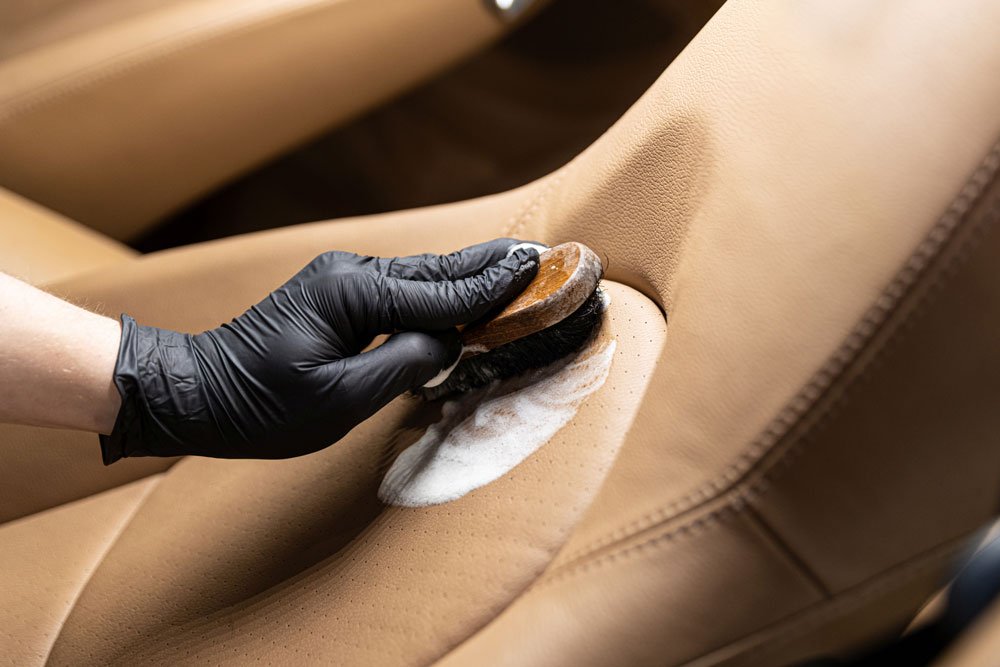Welcome to the world of horses, where these magnificent creatures captivate our hearts with their grace and strength. Have you ever wondered how long horses live? Join us on a journey to unravel the mysteries surrounding equine longevity. From understanding horse aging to discovering ways to extend their lifespan, we will explore the factors that influence how long these beloved animals can thrive by your side. So saddle up and let’s dive into the fascinating world of equine longevity!
Table of Contents
Lifespan of Horses
Horses are truly remarkable creatures with varying lifespans depending on several factors. On average, a horse can live anywhere from 25 to 30 years, but some have been known to reach their 40s and even beyond.
Smaller breeds tend to have longer lifespans compared to larger breeds, with ponies often living well into their 30s. Factors such as genetics, health care, diet, exercise, and living conditions all play crucial roles in determining how long a horse will live.
While genetics may set the baseline for lifespan potential, proper care and attention throughout the horse’s life can significantly impact how long they thrive. Understanding the typical lifespan of horses is just the beginning of delving into the complexities of equine longevity.
Factors Affecting Horse Lifespan
When it comes to understanding the lifespan of horses, there are various factors that can influence how long they live. One key factor is genetics, as different breeds have varying life expectancies. Additionally, the level of care and attention a horse receives throughout its life plays a significant role in determining its longevity.
Nutrition and exercise are crucial elements in maintaining a horse’s health and overall well-being. Providing a balanced diet tailored to their specific needs and ensuring they get regular physical activity can help extend their lifespan. Environmental factors such as living conditions, climate, and exposure to hazards also impact how long a horse lives.
Regular veterinary check-ups and preventive healthcare measures can contribute to prolonging a horse’s life. Monitoring for signs of illness or injury early on can lead to prompt treatment and better outcomes. By considering these various factors affecting horse lifespan, owners can strive to provide their equine companions with the best possible care for a longer and healthier life.
Understanding Horse Aging
As horses age, their bodies undergo various changes that can impact their overall health and longevity. Understanding horse aging is crucial for providing the best care and support to our equine companions.
One of the key aspects of horse aging is the gradual wear and tear on their joints, muscles, and organs. This can lead to issues such as arthritis, decreased mobility, and reduced organ function over time.
Another important factor in understanding horse aging is recognizing signs of dental issues that may arise with age. Proper dental care is essential for ensuring that older horses can continue to eat comfortably and maintain proper nutrition.
Additionally, monitoring weight fluctuations in senior horses is vital as they may experience muscle loss or difficulty maintaining a healthy body condition. Adjusting diet and exercise routines accordingly can help mitigate these effects of aging.
Being attuned to the specific needs of aging horses allows us to provide them with tailored care that supports their well-being as they gracefully enter their golden years.
Extending Horse Lifespan
As horse owners and enthusiasts, we all want our equine companions to live long, healthy lives by our side. Extending a horse’s lifespan involves proactive care and attention to their overall well-being.
Regular veterinary check-ups play a crucial role in detecting any health issues early on. Vaccinations, dental care, and parasite control are essential components of maintaining your horse’s health.
A balanced diet tailored to meet your horse’s nutritional needs is key in promoting longevity. Providing access to clean water at all times is fundamental for their health.
Exercise is vital for both physical and mental stimulation. Regular turnout time allows horses to move freely and socialize with other equines.
Creating a safe environment free from hazards helps prevent injuries that could impact your horse’s longevity. Implementing proper fencing, stable maintenance, and pasture management are important factors in ensuring their safety.
By taking a proactive approach towards your horse’s care through routine vet visits, proper nutrition, regular exercise, and creating a safe living environment, you can help extend their lifespan significantly.
What Influences Horse Longevity
When it comes to the longevity of horses, several factors play a crucial role in determining how long they live. Health conditions and care are significant influencers on a horse’s lifespan. Regular veterinary check-ups, proper nutrition, and suitable living conditions can all contribute to a horse living a longer life.
Another key factor is the impact of breed and genetics. Some breeds may be predisposed to certain health issues or have genetic traits that affect their overall well-being and longevity. Understanding your horse’s breed-specific needs is essential for promoting a healthy and extended lifespan.
Additionally, the role of nutrition and exercise cannot be overlooked when considering how long horses live. Providing balanced meals tailored to your horse’s individual requirements and ensuring regular exercise can positively impact their overall health and longevity.
Environmental factors also play a part in influencing horse longevity. Access to clean water, shelter from extreme weather conditions, and adequate space for movement all contribute to keeping horses healthy as they age.
Health Conditions and Care
When it comes to the health and care of horses, there are several factors that can impact their longevity. Regular veterinary check-ups play a crucial role in identifying and addressing any potential health issues early on. Proper dental care is also essential for ensuring your horse’s overall well-being.
Maintaining a balanced diet tailored to your horse’s specific needs is key. Providing fresh water at all times, along with a diet rich in quality hay and grains, helps support their immune system and digestive health. Additionally, monitoring your horse’s weight and adjusting their diet as needed can prevent obesity-related health problems.
Regular exercise is vital for keeping horses healthy both physically and mentally. Whether through riding, lunging, or turnout time in the pasture, staying active helps maintain muscle tone and joint flexibility while reducing stress.
Implementing good stable management practices such as maintaining clean living quarters and proper ventilation can help prevent respiratory issues. Furthermore, practicing good parasite control through regular deworming can safeguard against internal parasites that may compromise your horse’s health.
By prioritizing preventative healthcare measures and providing attentive daily care, you can help ensure a long and healthy life for your equine companion.
Impact of Breed and Genetics
When it comes to the lifespan of horses, one crucial factor to consider is their breed and genetics. Different horse breeds have varying life expectancies, with some living longer than others. Certain breeds are known for their longevity, while others may be predisposed to health issues that can affect how long they live.
Genetics also play a significant role in determining a horse’s lifespan. Just like in humans, genetic factors can influence susceptibility to certain diseases or conditions that may impact longevity. Breeding practices can also impact the overall health and wellbeing of horses, affecting how long they live.
Understanding the breed-specific characteristics and potential genetic predispositions of your horse can help you tailor their care accordingly. By being aware of these factors, you can take proactive steps to ensure your horse leads a healthy and fulfilling life for as long as possible.
Role of Nutrition and Exercise
A crucial aspect of understanding equine longevity is recognizing the vital role that nutrition and exercise play in maintaining a healthy horse. The old adage “you are what you eat” holds true for our four-legged companions as well. Providing a balanced diet rich in essential nutrients like vitamins, minerals, proteins, and fiber is key to promoting overall wellbeing and extending their lifespan.
Equally important is regular exercise to keep horses physically fit and mentally stimulated. Just like humans, horses benefit from staying active to maintain muscle tone, cardiovascular health, and joint flexibility. Incorporating a mix of turnout time, riding or driving sessions, and ground exercises can help prevent obesity, improve circulation, and enhance overall quality of life for your horse.
Remember that each horse has unique nutritional needs based on factors like age, weight, activity level, and health status. Consulting with a veterinarian or equine nutritionist can help tailor a diet plan specific to your horse’s requirements. Similarly, working closely with your trainer or equine professional can ensure that your horse’s exercise routine aligns with their individual capabilities and goals.
Environmental Factors
Environmental factors play a significant role in determining the longevity of horses. The quality of air, water, and pasture where a horse lives can impact its overall health and lifespan. Horses that are exposed to clean air free from pollutants are likely to experience fewer respiratory issues and live longer, happier lives.
A suitable living environment with access to fresh water sources is crucial for maintaining optimal health in horses. Water quality directly affects digestion, hydration levels, and overall well-being in equines. Additionally, providing ample space for horses to move freely and engage in natural behaviors promotes physical fitness and mental stimulation.
Exposure to extreme weather conditions such as heat waves or severe cold can also affect a horse’s health. Proper shelter from harsh elements is essential for ensuring the comfort and safety of these animals. Adequate protection against inclement weather helps prevent stress-related illnesses and injuries, contributing to an extended lifespan for horses.
In conclusion environmental factors like air quality, water source cleanliness, pasture conditions, shelter availability all play vital roles in influencing the longevity of horses.
How to Ensure a Long Horse Life
Ensuring a long and healthy life for your horse involves a combination of factors that contribute to their overall well-being. Proper nutrition is key to supporting your horse’s health, so make sure they have access to high-quality hay, fresh water, and balanced feed. Regular veterinary check-ups are essential in catching any potential health issues early on.
Providing ample space for exercise and turnout can help keep your horse physically fit and mentally stimulated. Regular grooming not only keeps them looking good but also allows you to check for any abnormalities such as skin irritations or injuries.
Maintaining a clean and comfortable living environment is crucial in preventing diseases and promoting good respiratory health. Implementing a regular deworming schedule is important in safeguarding against internal parasites that can compromise your horse’s immune system.
Building a strong bond with your horse through consistent training, social interaction, and mental stimulation can lead to a happier and more fulfilling life for both of you.
Recognizing Ageing in Horses
As our beloved equine companions age, there are subtle signs that indicate the passage of time. One of the first indicators is a graying or whitening of their coat, often starting around the eyes and muzzle. Their once vibrant stride may become slower and more deliberate, showing a decrease in overall energy levels.
You may notice changes in their weight and muscle tone despite consistent feeding and exercise routines. Arthritis or joint stiffness can also become more apparent as horses grow older, affecting their movement and flexibility. Paying attention to any shifts in behavior such as increased irritability, lethargy, or difficulty with routine tasks can be key in recognizing aging in horses.
Regular veterinary check-ups can help track your horse’s health status over time and catch any age-related issues early on. Adjusting their care regimen to accommodate changing needs, like providing softer bedding for comfort or adjusting feed for better digestion, can support their well-being as they gracefully navigate the aging process.
Practical Tips for Horse Care
When it comes to caring for your horses, there are some practical tips that can help ensure their long and healthy life. Regular veterinary check-ups are essential to catch any health issues early on. Maintaining a balanced diet tailored to your horse’s needs is crucial for their overall well-being.
Proper grooming not only keeps your horse looking good but also helps prevent skin infections and promotes circulation. Providing ample exercise and mental stimulation is important for keeping them physically fit and mentally engaged.
Ensuring access to clean water at all times is non-negotiable, as dehydration can lead to serious health problems. Keeping their living environment clean and free of hazards will reduce the risk of accidents or illnesses.
Establishing a routine dental care schedule with a qualified equine dentist will prevent dental issues that may affect eating and digestion. And lastly, showing love, patience, and respect towards your horse creates a strong bond based on trust and mutual understanding.
Conclusion
Understanding equine longevity is crucial for every horse owner. By recognizing the factors that influence a horse’s lifespan and taking proactive steps to provide proper care, nutrition, exercise, and environmental conditions, you can help ensure your beloved companion lives a long and healthy life. Paying attention to signs of aging, implementing practical tips for horse care, and staying informed about best practices will not only extend your horse’s lifespan but also enhance the quality of their golden years. Remember, each horse is unique, so tailor your approach to suit their individual needs and enjoy many happy years together.





